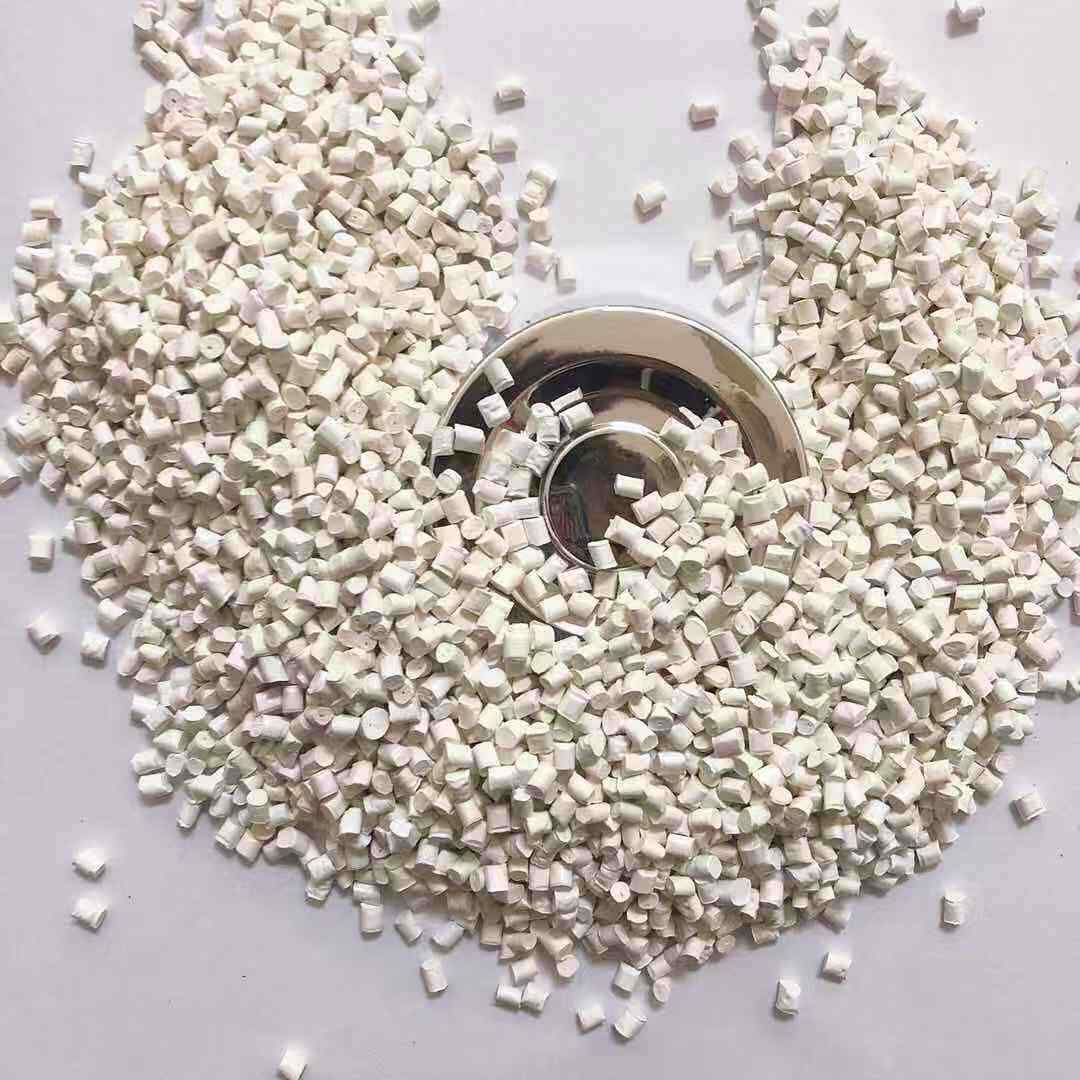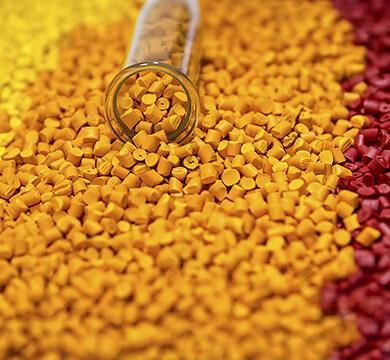Email format error
Email cannot be empty
Email already exists
6-20 characters(letters plus numbers only)
The password is inconsistent
Email format error
Email cannot be empty
Email does not exist
6-20 characters(letters plus numbers only)
The password is inconsistent

Offer Technical Support and Customized Solutions
The company is committed to creating new and improved plastic materials to meet the evolving demands of the market.

How to improve product performance through modified plastic particles
Introduction:
With the continuous development of modern manufacturing processes, the requirements for plastic materials are increasing day by day, and traditional basic plastics are gradually unable to meet the needs in many high-demand applications. Modified plastic particles are a key tool to improve the performance of plastics. Through physical or chemical enhancement, plastics have better performance in mechanical properties, thermal stability, corrosion resistance, etc. This article will discuss in detail the types and advantages of modified plastic particles, and take the automotive, electronics, home appliances and other industries as examples to analyze how modified materials promote the improvement of product performance.
1、Definition and modification methods of modified plastic particles
Modified plastic particles are physically or chemically modified by introducing external reinforcement components or additives to change some of their performance characteristics to meet specific application requirements. The modification methods can be divided into the following types:
- Filler reinforcement
Add reinforcement materials (such as glass fiber, mineral fillers, etc.) to the plastic matrix to improve the mechanical and thermal properties of the plastic. For example, glass fiber reinforced PA6 (nylon 6) or PA66 (nylon 66) has significantly improved strength, rigidity and temperature resistance, and is suitable for engineering applications with high-intensity loads.
- Adding functional additives
The specific properties of plastics are improved by adding different additives (such as flame retardants, UV inhibitors, antioxidants, antistatic agents, etc.). Flame retardant modified plastics are widely used in the field of electronics and electrical, while UV-resistant modified materials are suitable for outdoor applications to extend the service life of the product.
- Copolymerization modification
Through copolymerization, different monomers are combined into new polymers, and modified plastic particles have better comprehensive properties. For example, PC/ABS alloy materials obtain the advantages of both plastics through the copolymerization of polycarbonate and acrylonitrile-butadiene-styrene copolymer (ABS), with higher impact strength and thermal stability.
- Performance advantages of modified plastic particles
- Improved mechanical properties
Modified plastic particles significantly improve the tensile strength, impact strength and wear resistance of plastics by adding reinforcing fillers (such as glass fiber or carbon fiber). For example, glass fiber reinforced PA6 and PA66 are often used in mechanical parts that require high strength and high rigidity, such as automotive parts, gears, bearings, etc.
- Improved temperature resistance
By selecting resins with high thermal stability and adding heat-resistant additives, modified plastic particles can significantly improve the stability of materials in high temperature environments. For example, PPA (polyimide) and PPS (polyphenylene sulfide) materials can maintain their mechanical properties and chemical stability at high temperatures, and are suitable for high-temperature working environments such as automobile engine compartments and electronic equipment interiors.
- Improved corrosion resistance and chemical stability
Modified plastic particles can improve the chemical stability of materials by adding anti-corrosion fillers or special resins. For example, PPS materials are often used in the chemical industry and food processing equipment due to their excellent corrosion resistance, and can withstand harsh environments such as acids, alkalis and solvents.
- Flame retardant performance and safety
Flame-retardant modified plastic particles are particularly important in electronic and electrical products, and can significantly reduce the risk of fire. By adding flame retardants to plastics, the self-extinguishing properties of plastic particles are improved, meeting the safety standards of various industries. Common flame retardant materials include modified ABS, PC and PA6.
3. Application of modified plastic particles in various industries
- Automobile industry
In the automotive manufacturing industry, the application of modified plastic particles is becoming more and more extensive. In order to meet the needs of lightweight, high temperature resistance, impact resistance, etc., the application of glass fiber reinforced PA66, PPA, PBT and PPS materials in automotive parts is increasing. For example, modified plastic materials are used in automobile engine hoods, exhaust systems, engine parts, headlights, etc., which not only improve the performance of components, but also effectively reduce the overall weight of the vehicle and improve fuel efficiency.
- Electronic industry
Electronic products have extremely high requirements for the mechanical properties, flame retardancy, and UV resistance of plastics. PC/ABS alloy materials are widely used in mobile phone casings, TV frames, electronic accessories, etc. due to their good impact strength, high temperature resistance and good flame retardancy. The high electrical insulation and antistatic properties of modified plastics make their application in circuit boards, plugs, terminals, etc. of electrical equipment also very important.
- Home appliance industry
In the home appliance industry, modified plastic particles are used to manufacture various high-performance components, such as refrigerators, microwave ovens, washing machine shells, and electrical components. Modified materials are not only required to be resistant to high temperatures, corrosion, and impact, but also to have good appearance and processability. Common modified materials such as PBT, PA66, and PPA are widely used in the field of home appliances.
4、How to choose suitable modified plastic particles?
When choosing modified plastic particles, it is necessary to combine specific application requirements and working environment. The following are several key factors:
- Mechanical performance requirements
If the product requires higher strength, rigidity, and wear resistance, glass fiber reinforced plastics (such as GF-PA66, GF-PPA) are better choices. For applications with higher impact resistance requirements, modified ABS, PC/ABS alloys, and other materials can be selected.
- Heat resistance requirements
For high temperature applications, materials with strong high temperature resistance must be selected, such as PPA, PPS, PEI, etc. They can work for a long time in high temperature environments without deformation or failure.
- Corrosion resistance requirements
If the application environment involves acid, alkali or other chemical media, it is very important to choose materials with strong corrosion resistance, such as PPS, PTFE, etc. These materials have excellent chemical resistance and can adapt to various harsh environments.
- Flame retardant performance requirements
If the product requires flame retardant properties, flame retardant modified materials must be selected. Flame retardant ABS, PC, PA6 and other materials meet international flame retardant standards such as UL 94 and are widely used in the electronic and electrical industries.
Conclusion:
Modified plastic particles provide more precise and optimized material selection for modern manufacturing. By choosing suitable modified materials, companies can significantly improve product performance, extend service life and meet the needs of various industries. Whether it is automotive, electronics, home appliances or other industries, the widespread application of modified plastic particles has undoubtedly promoted the innovation and development of product performance. When choosing modified plastic particles, companies must choose the most suitable materials according to specific needs, environment and performance requirements to ensure product quality and performance.

